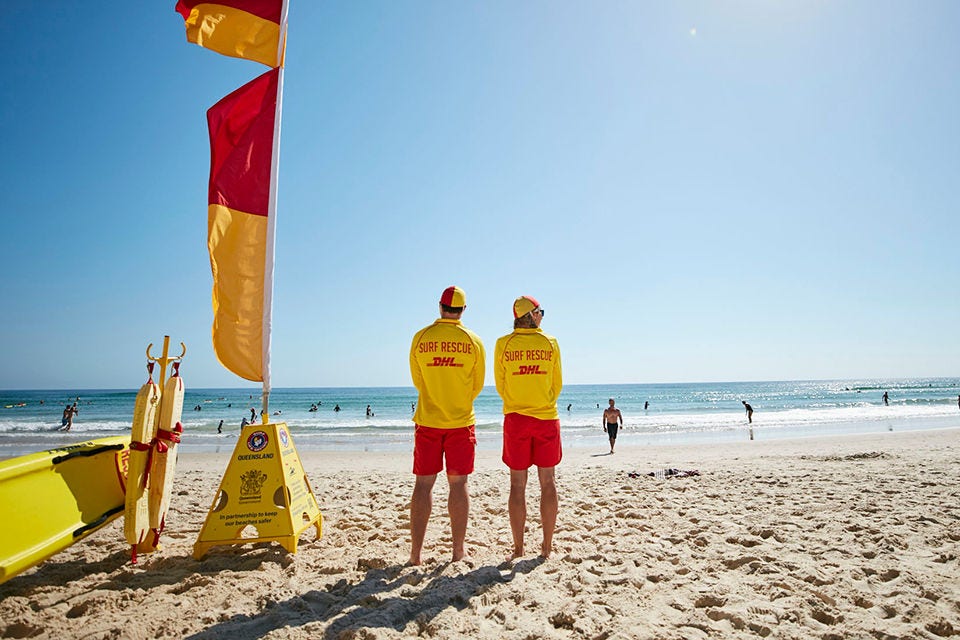
Staying safe
Australia is a safe country with a stable political system and a low crime rate. But you can still take some steps to keep yourself safe when on campus, going out or online.
Download Safety Apps
Safety apps are very helpful if you are in an emergency or dangerous situation. Here are some we recommend:
- Emergency+ uses GPS data to communicate your exact location to the correct emergency service in your area.
- Sonder contains safety advice and communication tools for students, including GPS tracking of your route, alerts for fires or automobile crashes and a “check on me” function.
- St John Ambulance First Aid contains step-by-step instructions on how to treat a patient in medical emergency scenarios, including how to perform CPR and manage allergic reactions, choking or diabetic episodes.
On campus
Australian education providers are committed to maintaining a safe, inclusive and respectful community for all students and staff.
Under Australian regulations, education providers must ensure that student support services and contacts are available, and that all possible actions are taken to ensure a safe environment.
All education and training providers offering programs to international students are also required by Australian law (under the ESOS Act 2000 and National Code of Practice) to offer support services information to international students, including those related to emergency, health and welfare services.
It's important to know the education provider support and safety services that are available to you. Do this when you arrive in Australia, so that you already what they are in case you find yourself in a dangerous situation on campus.
There are standard safety services offered by Australian universities, such as:
- On-campus security staff at all times.
- Security staff escorts, to take you to your car if you’re leaving campus at night.
- Shuttle bus services.
Going out
When you go out with friends, it's important to be aware of your surroundings and take precautions to stay safe.
Keep these tips in mind, especially when drinking alcohol:
- Keep your bag and belongings close to your body and where you can always see them, and don't carry large amounts of money.
- Make sure you have enough money to get home.
- Try to travel home with a friend or in a group.
- Do not walk home alone at nighttime.
- Never hitchhike.
- Use pedestrian walkways and cross the street at pedestrian crossings or lights where available.
Online
When using the internet, like anywhere in the world, you should protect yourself against online scams like 'phishing', online bullying and identity theft.
There are many government resources to help you protect yourself online and report abuse, including:
- Don't Be A Mule Factsheet: The Department of Education has put together some translated fact sheets about an online scam that can affect students.
- Stay Smart Online: The Australian Government's online safety and security website.
- ATO scam advice: Information on recognising and avoiding tax scams and fraud.
- ReportCyber: An online system to securely report cybercrime.
- Attorney-General's Department: Advice on protecting your identity and recovering from identity crime.
- eSafety Commissioner: Information on how to protect your personal information to prevent it from being misused.
In Australia, racism is illegal
The Racial Hatred Act is a national law that makes racial vilification unlawful. It means that people in Australia can complain to the Australian Human Rights Commission about racially offensive or abusive behaviour.
What to do if you experience racism
The Australian Human Rights Commission (AHRC) is a national organisation that handles complaints about racial discrimination. You can make an online complaint or call 1300 656 419.
Or, if you experience racism:
- on campus: get help from your education provider's support services.
- at work: contact the Fair Work Ombudsman.
- from your education provider: contact the National Student Ombudsman or your local state or territory ombudsman.
- online: make a compaint to the Australian Human Rights Commission or the Office of the eSafety Commissioner.
If you have experienced racial abuse or feel unsafe, please contact the police on the details below.
Find out more about racism and the supports available here.
How to report a crime
International students have the same rights to laws and police protection as all other people in Australia. This includes reporting a crime and receiving assistance if you are a victim.
Ways to report a crime
- For life-threatening or dangerous situations: Call the national emergency number, triple zero (000). Find out more about what to do in different emergency situations.
- For non-urgent issues: Call the national Police Assistance Line on 131 444.
- For minor incidents: Make a report through the police's online community portal for incidents like lost property.
- For anonymous tips: Contact Crime Stoppers on 1800 333 000 about criminal activity.
- To make a report in person: Visit your local police station.
Getting help to make a report
- Speak to your education provider’s student services. They can assist you to file a report.
- Use the Translating and Interpreting Service (TIS National) on 131 450 for interpreter assistance. This is a free service available for these situations.
If you're not satisfied with the police's internal handling of your report, you can make a formal complaint through your state or territory’s police department. If the matter still isn’t resolved, you can escalate it to your state or territory ombudsman:
Read more tips and advice for students
Whether you're a prospective student seeking inspiration or a current student looking for guidance, our blogs will help you discover the vibrant world of studying in Australia.


